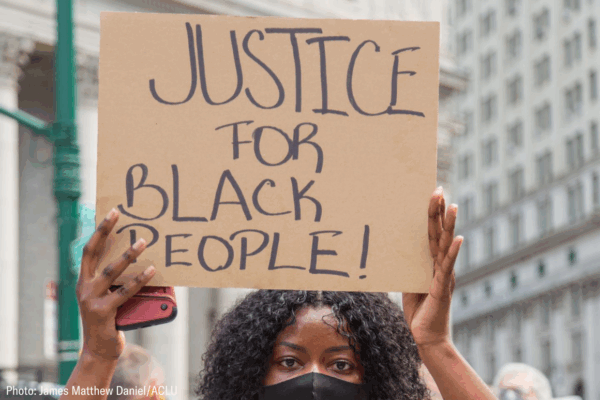This op-ed was originally published in the Richmond Times-Dispatch on Dec. 19, 2020. Ashna Khanna is the ACLU-VA's legislative director. Chelsea Higgs Wise is the executive director of Marijuana Justice.
Virginia politics is dominated right now by talk of legalizing marijuana. Earlier this year, we took the leap into “decriminalizing” the drug, and legalization seems like the next logical step.
But this conversation shouldn’t be focused on people who want to enjoy recreational marijuana. It should focus on the hundreds of Black and brown Virginians who are suffering the consequences of consuming or possessing something that now incurs a $25 civil penalty.
It should focus on the thousands of Black and brown Virginians who have trouble with stable employment and housing, or bounce in and out of the criminal legal system, because marijuana laws have been used as a weapon against Black and brown people like us for decades.
Bottom line: Marijuana should be legal. It was prohibited in the early 20th century to criminalize people coming to the United States from Mexico. Texas police led the charge claiming marijuana brought across the border was the root cause of violent crimes — the kind of scare tactic too often used to justify the war on drugs, and the criminalization of Black and brown people.
Above all else, legalizing marijuana is about racial justice. When the government declared a “war on drugs” in 1971, police upped their enforcement of marijuana laws, targeting Black and brown communities. Today, Black Virginians are 3.4 times more likely than white Virginians to be arrested for simple marijuana possession. That number is even higher in certain corners of the commonwealth like Hanover County, where Black people are 20 times more likely to be arrested.
In 2019, even though “decriminalization” of marijuana was a top priority for legislators, the Virginia State Police reported that nearly 27,000 people were arrested in Virginia for possession of marijuana — most of whom are young Black people.
Once arrested, Black Virginians are four times more likely than white people to get convicted of a marijuana charge. There are racial disparities at every level of the criminal legal system. That’s not a mistake — that’s the system working as designed.
Virginia’s version of “decriminalization” did nothing to address the racial disparities resulting from this country’s war on drugs. It wasn’t a step forward, and it certainly wasn’t a win. Marijuana still is illegal in Virginia. Only the penalty for simple possession has changed. This now is the law of the land, and unless lawmakers take immediate action, it will stay this way for the potentially years-long process of setting up the new legal markets.
Real reform means centering racial justice and social equity as we move toward legalization.
Real reform means centering racial justice and social equity as we move toward legalization. While this is happening, however, it remains important to redress current marijuana laws that still are racist. We need immediate relief. As lawmakers debate the ins and outs of a legalization bill, there are several standards that must be met:
- The prohibition on marijuana immediately should be repealed until the new legal system is set up. Lawmakers must remove all penalties for marijuana possession and automatically expunge conviction records for all crimes that no longer are illegal. Sentences should be reclassified for people who currently are serving time for crimes that no longer are illegal. That way, no one else will be harmed by racist marijuana law enforcement.
- We should not create new crimes as we move toward legalization. People younger than age 18 should not be considered delinquent — and legalization should not continue to fuel the school-to-prison pipeline, leading to another generation of Black and brown kids and young adults being criminalized.
- We need to ensure the people most harmed by the war on drugs have full and equitable access to the new legal markets. Businesses owned by people impacted by the criminal legal system should be able to compete and participate in the new legal markets. People with prior possession convictions should not be denied licenses to grow, package or sell marijuana.
- We must work to repair and rebuild the communities that have been targeted by marijuana law enforcement by reinvesting tax revenues directly into Black and brown communities and the people who live there. It’s important to get specific here and not solely rely on funneling unchecked resources back into the same institutions that have failed Black and brown communities. Those who most have been impacted must have meaningful input at every level and seats at every table — on any working groups, reinvestment committees or advisory boards.
Virginia has a real opportunity to do marijuana legalization right. We can’t make the same mistakes that we made with “decriminalization.” This time we have the opportunity to center racial justice and social equity in every decision we make around legalization.
That includes who can participate in the new legal markets, what we do with tax revenues, how we treat those with current criminal convictions and how we ensure that we have an equitable system open to all.

